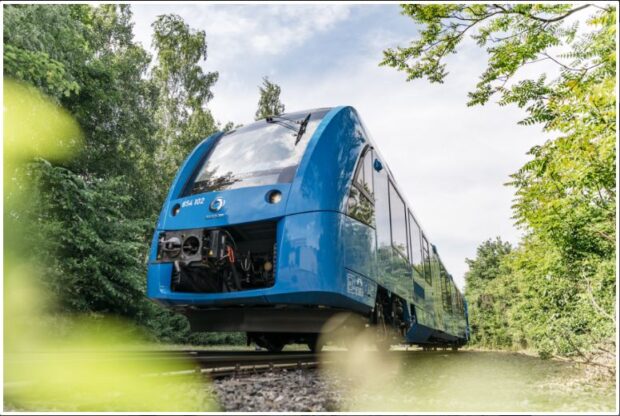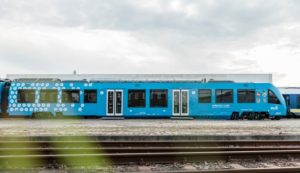

Greener, quieter, train of the future
In a bid to lower its carbon emissions, Germany has rolled out the world’s first train that runs on hydrogen power, equipped with fuel cells that produce electricity through a chemical reaction involving hydrogen molecules. The pollution-free train is fitted with batteries made of lithium-ion using the same principle as those in mobile phones. Consequently, the train emits no carbon dioxide and emits only steam and water droplets.


The trains are called Coradia iLint ‘Hydrail’ trains and have been manufactured by the global French manufacturer Alstom. The company claims that these trains can run 1,000 km on a single tank of hydrogen with the excess energy being stored in the Li-ion batteries on the train. “The world’s first hydrogen train is entering into commercial service and is ready for serial production,” Alstom CEO Henri Poupart-Lafarge said at an unveiling ceremony in Bremervoerde, the station where the trains will be refuelled with hydrogen.
Two bright blue trains, have been deployed on the 100-kilometre (62-mile) route between the towns and cities of Cuxhaven, Bremerhaven, Bremervoerde and Buxtehude in northern Germany. Each train can carry close to 300 passengers and can clock speeds of over 140 km/h.
The first of these hydrogen trains started operating in Germany on Sunday. The country will be rolling out 14 more such trains in the coming months. Alstom confirmed that besides Germany, there’s demand from other countries as well, including the UK, the Netherlands, Italy, Canada, Norway and Denmark. All countries that have made serious pledges on cutting energy intensity and going renewable.
Priced at around $7 million, these trains are way more expensive than conventional diesel locomotives, where the best ones would cost under $3 million. However, if the expenses are looked at in the long term, the hydrogen trains end up being cheaper due to the rechargeable nature of their li -ion batteries.
1. The mandate for blending Compressed Biogas (CBG) with natural gas has come into effect…
Andhra Pradesh is striving towards greening its energy sector with quite some speed. In a…
With an objective to bolster India’s green energy goals, a Tripartite Agreement has been signed…
The Union MNRE Minister Pralhad Joshi launched the Green Hydrogen Certification Scheme of India (GHCI)…
India’s energy conglomerate Bharat Petroleum Corporation Limited (BPCL) has commissioned a 5MW green hydrogen plant…
In a historical development, the European Space Agency (ESA) has successfully launched its pioneering ‘Biomass’…